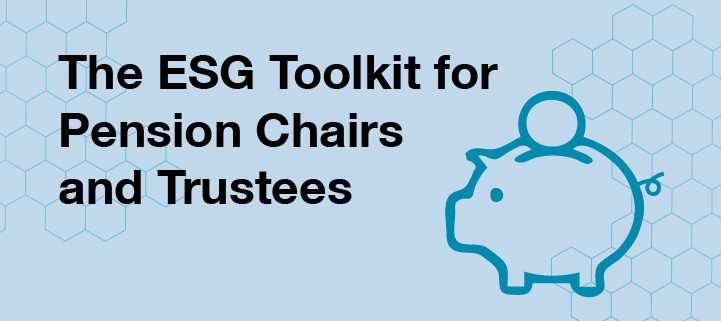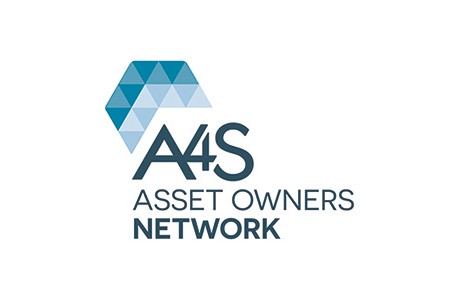Collaboration can help local government pension schemes embed sustainability considerations
This article was written by Kerry King, director of capital markets and fundraising, Accounting for Sustainability. The original publication of this article was in the Local Government Chronicle.
The tumultuous events of the past few years – and the ongoing economic, geopolitical, environmental and social crises we are facing – continue to remind us how a seemingly stable economic market can be impacted without much warning, in turn affecting the decisions made by the pension industry.
After the immediate impact of a crisis comes the ‘crossroads’ moment, where the possibility for change – often fleetingly – presents itself. Stakeholders then have a choice: to revert to business as usual, or to learn lessons and take steps to mitigate risks, change direction or flip old systems on their head.
In an example of such a moment, the LDI (liability-driven investments) crisis last year has shaken the confidence of well-established investment practices and generated a multitude of responses across the industry. Regulators are busy building out guidance and policy to improve the future resilience of LDI funds, including an update to the published draft defined benefit funding code of practice by the Pensions Regulator.
Meanwhile, for many defined benefit pension funds, the crisis has brought about a big asset allocation rethink. Many are now in a significantly changed funding position, with the sharp rise in interest rates having shrunk liabilities faster than the value of assets has fallen; this is game-changing for these pension funds who now find themselves fundamentally closer to buy-out than they would have predicted six months earlier. This, in turn, has significantly changed the playing field for the bulk annuity market, with what was essentially a seller’s market becoming a buyer’s market.
Choppy waters of environmental disruptions
The LDI crisis demonstrates the direct knock-on effect of something seemingly far removed from the day-to-day decisions of pension schemes – the political actions of a few individuals. And this example is relatively limited in scope. The climate crisis, on the other hand, affects everyone and everything on the planet, with complex feedback loops and tipping points, meaning that we need to adopt a systemic approach to have any chance of addressing the crisis.
But what does this mean for the custodians of pension savings? Pension schemes are at the centre of this crisis, as trustees look to provide financial stability for their members at retirement. Unfortunately, pension schemes can also find themselves unwittingly contributing to the factors that are exacerbating another crisis – that of climate change – the effects of which may well be felt hard by their members.
Trustees have to navigate the choppy, sometimes stormy, waters of geopolitical, economic, social and environmental disruptions while remaining focused on ensuring the long-term viability and resilience of their funds. Regulators, standard setters and industry initiatives are also bringing in new policies, perspectives and guidance on trustees’ responsibilities and conduct. While this is positive and supportive, it can add confusion to what is already a challenging set of issues for trustees to address.
Advice to trustees
To help address this difficult task, Accounting for Sustainability (A4S) runs a network for pension scheme chairs to come together, share and explore approaches to overcome different challenges around embedding sustainability considerations into their investment and strategic decisions. Some pension funds from the Local Government Pension Scheme (LGPS) are already represented.
The network has already generated some advice for trustees on how to navigate the ever-changing landscape, which includes:
Learning from one anothers’ experience. Sometimes the best first step is to reach out to peers who may have valuable experience to share, including lessons learned, how to approach more challenging aspects and ‘top tips’ on practical actions that trustees can take. While LGPS funds have some unique challenges, many other challenges are common across different types of pension schemes, and therefore reaching out to those outside of the public sector can bring a great deal of value. A4S’s range of pension case studies covers a wide range of topics including implementing the Task Force on Climate-related Financial Disclosures (TCFD) guidance, aligning manager mandates, net zero strategies and stewardship.
Understanding the systemic risks that are most relevant to your scheme. Take time as a board to map out the key systemic risks that your scheme will be vulnerable to, and use a framework such as our ESG Maturity Map to help shape discussions. For LGPS funds, there is the additional challenge of aligning government and local authority policies and priorities with the systemic risks identified by the trustee board. For example, LGPS funds need to balance the demands of combatting climate change against their commitment to invest in the levelling up agenda. Understanding and translating these different demands as part of a fair and inclusive transition to net zero that works for the local area will be crucial.
Collaborating with peers. A trustee’s voice can be amplified when working with other asset owners who share the same vision, leveraging the scheme’s assets many times over. Seeking creative partnerships – often with representation across the system – to address the systemic issues that you have identified can help to drive change at the level and pace needed. While LGPS funds may feel constrained by the pooling structure, some schemes are in fact using this set-up to influence a wider pool of assets across a number of funds. For example, the South Yorkshire Pension Authority – one of 11 pensions funds within the Border to Coast pool – led a campaign to drive net zero consensus across the pool. Having direct conversations with the pooling partner and the pooled schemes has helped them all build an evidence base that supports the need for net zero alignment. The Emerging Markets Just Transition Investor Initiative is an example of how pension pools and funds can work together for greater impact. In this case, Border to Coast and Brunel, alongside the Church of England Pension Board and others making up £400 billion in assets under managements, are aiming to drive direct investments that support the climate transition in emerging markets, while supporting economic growth.
While current and future crises will continue to disrupt the decisions being made on a daily basis, trustees can find a safe harbour in each other, as well as in collective networks such as A4S’s Asset Owners Network. By sharing insights, pooling ideas and leveraging a collective voice, pension schemes – even those with limited resources – will be in a better position to ensure the resilience of their funds.



